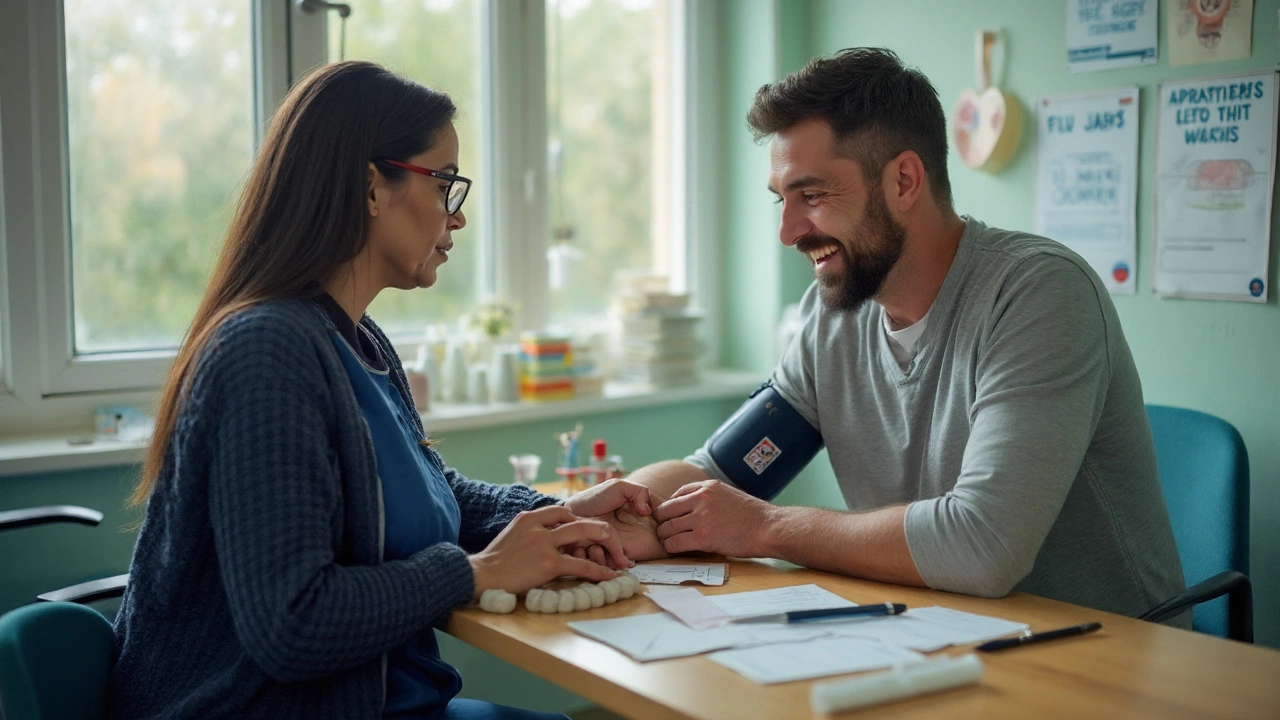GP Guide: What a General Practitioner Does and Why It Matters
Ever wonder what a GP really does all day? In the UK, a General Practitioner is the first point of contact for most health concerns. They handle everything from a sore throat to chronic disease management, and they decide when you need a specialist. Think of your GP as a health hub that keeps your medical record, arranges tests, and helps you stay on top of preventive care.
Core responsibilities of a GP
When you walk into a clinic, the GP will start with a quick chat about why you’re there. They’ll ask about symptoms, check your vitals, and may order blood work or imaging right then. If the issue is simple, you’ll leave with a prescription or advice. If it’s more complex, the GP writes a referral to a specialist—like a dermatologist for skin problems or a cardiologist for heart concerns. They also manage long‑term conditions such as diabetes, asthma, or high blood pressure, adjusting medication and monitoring progress over months or years.
Preventive care is another big part of the job. GPs schedule flu shots, cervical smears, and health checks, and they give lifestyle tips to keep you healthy. Because they see you regularly, they can spot trends—like a gradual weight gain—that might signal a deeper issue.
How to make the most of your GP visits
Preparation cuts down waiting time and makes the appointment more useful. Write down your main concerns and any new symptoms before you go. Bring a list of current meds, even over‑the‑counter ones, because GPs need the full picture to avoid drug interactions.
If the GP suggests a referral, ask what the next steps are and how long you might wait. Many specialists have long queues, so knowing the timeline helps you plan. Don’t hesitate to ask about alternatives; sometimes a physiotherapist or dietitian can handle the issue without a specialist visit.
Building a relationship with your GP can improve care. Share your health goals and any worries about treatment plans. A GP who knows your history can tailor advice, catch issues early, and avoid unnecessary tests.
Finally, use the NHS online services. You can book appointments, request repeat prescriptions, and view test results through the patient portal. It saves time and lets you stay on top of your health without extra trips.
In short, your GP is the cornerstone of primary care in the UK. They diagnose, treat, refer, and keep you healthy through preventive measures. By coming prepared, asking clear questions, and staying engaged with the online tools, you’ll get better, faster care and keep your health on track.
Why You Need a GP: What Family Doctors Do, When to See One, and How to Get the Most From Your Visit
Not sure why you need a GP? Here’s what a family doctor does, when to see one vs urgent care, how to enrol in NZ, costs, referrals, and smart prep tips.
Read More
